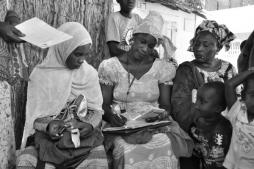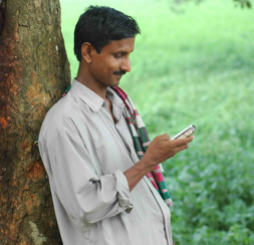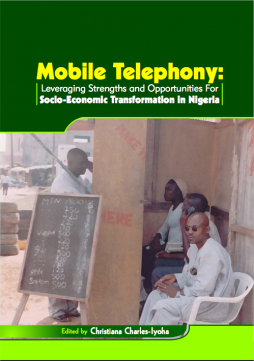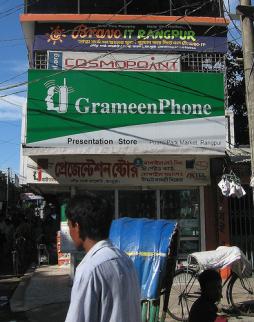mobiles in development
Posted by admin on Jan 11, 2011
What can we expect to see on the technical front in m-health and m-for-development in 2011? Unleashing the inner geek in all of us, guest contributor Matt Berg has some predictions. This post originally appeared on his blog BuildAfrica.org. It is reposted here with permission.
Commoditization of Mobile Based Data Collection
Posted by anoushrima on Aug 17, 2010
So, you heard about FailFaire (and maybe even read the New York Times article about it). You liked the idea of learning from failure in a not-so-earnest setting and want to have your very own FailFaire, or you think that your organization could benefit from an internal event. Here are some tips for rolling your own.
Caveat: We have now organized two FailFaires (first in NYC, next in DC) for our community of practitioners who work with ICTs and mobiles for international development because that community is our audience. And part of our mission here at MobileActive.org is to help reduce redundancies, build capacity and advance the field. We also happen to work in an area of the NGO sector where failure is not often discussed, least of all honestly.
But the FailFaire concept can work for any field or, maybe just as helpfully, within any organization. (Note, of course, that some of the suggestions listed below will differ for an internal event, rather than a public one like ours.)
The FailFaire name and logo are licensed under a liberal Creative Commons, so feel free to use them. You do not need our permission. For tweeting, blogging and posting event pictures, we have used the hashtag ‚#failfaire. If you are running an event branded as FailFaire, feel free to drop us a line (or leave a comment) to let us know how it went.
Here are some thoughts and tips on how we've approached FailFaires.
1. Start with a lot of personal, old-fashioned, direct outreach for both participants and presenters
Identify those in your network who are more agile, and less bureaucratic and less resistant to talk about and learn from failure. Have many conversations to introduce/warm them up to the this radical new idea long in advance - perhaps before you've even set a date. Explain the concept, the goals, and the format of the event. Gauge whether there are enough supporters who will a) participate, and especially b) present. This process is critical in order to get to #2: You need buy-in, advocates, people who are into it early on.
2. Have the right people in the room
You want people who are there to learn, not to be voyeuristic; there to be constructive, not to be snarky or malevolent. People who genuinely care about their work and want to do better. People who are ok with some irreverence and humor, because failure is hard to talk about without it. This type of event is great for building (or strengthening) community, so try to keep the audience targeted and relevant to your focus or topic. Promote the event among people you think will get the most out of it - those who value different ways of learning.
Posted by AnneryanHeatwole on May 28, 2010
June is exploding with events focused on mobiles for social change. Look at some of the places where the movers and shakers in the 'mobile world for good' will be gathering:
2 June, New York City, New York, USA: Personal Democracy Forum will host Mobilize Your Cause: A Bootcamp. The half-day event will provide insight into developing an effective mobile campaign, how to build an activist community, and new technologies that are making it easier to use mobiles for social causes. The event is followed by Personal Democracy Forum's two-day conference, (3-4 June) which will focus on exploring technology's impact on technology and government. MobileActive.org will host the mobile portion of the bootcamp.
Posted by KatrinVerclas on Aug 09, 2008
In our series of interviews from the Bellagio conference on mobile health, here is David Sasaki's last interview with Patricia Mechael who is coordinating the mobile strategy for the Millennium Village Project. She talks about mobile adoption, user-centric design, women and mobiles, how Millennium Villages is using mobiles to improve health outcomes, and what she sees as the next big projects in mobile health.
David Oso: You have worked in a number of countries -- Egypt, Sudan, the UK, Bangladesh, Cambodia, Mozambique, Russia, Rwanda, the list keeps going on and on. How are cell phones used differently in these different countries where you've worked?
Posted by CorinneRamey on Apr 28, 2008
Imagine you're in Bangladesh and you want to buy a cow. You pull your mobile phone out of your pocket and start sending text messages to 3838, the shortcode for CellBazaar, a mobile phone marketplace which some have called the "Craigslist of Bangladesh." You look through the relevant ads and look at the ages, locations, and number of teeth of the 187 cows that are currently for sale. After another SMS, you are connected with the phone number of the the seller, ready to make your new purchase. What could have taken days to coordinate was made easy by a series of simple text messages.
Kamal Quadir, the founder of CellBazaar, sat down with MobileActive for an interview. Quadir said that he first got the idea for CellBazaar when he was a graduate student at MIT. "I was surrounded by technologically sophisticated people," said Quadir, who is originally from Bangladesh.
Posted by CorinneRamey on Mar 07, 2008
Two upcoming conferences will address issues relating to mobile phones in development.
The International Development Research Centre (IDRC), a Canadian organization focused on helping organizations in developing countries use technology, will be hosting a conference on mobile phones used to improve access to health services in Latin America and the Caribbean.
The conference will be held on March 17 and 18 in Florianópolis, Brazil. More information is available on the IDRC website.
A WC3 workshop on the "Role of Mobile Technologies in Fostering Social Development" is currently accepting proposals. According to the website, "The goal of the workshop is to understand specific challenges of using mobile phones and Web technologies to deliver services to underprivileged populations of developing countries."
Posted by CorinneRamey on Feb 29, 2008
The brightly-colored umbrellas of mobile phone vendors, selling top-up airtime and the use of mobile phones for calls, dot the landscape of urban and rural Nigeria. However, says a new book on mobile phones in Nigeria, cell phones haven't just visually changed the landscape of Africa's most populous country, but have transformed the country economically, socially, and democratically as well.
Posted by CorinneRamey on Oct 08, 2007
Abu Sufian's small room in Fultola, Bangladesh looks like a standard Internet cafe. There are four workstations -- each with a mouse, keyboard, and monitor -- where customers can check email or browse the Internet. But this isn't just any Internet cafe -- the center is all made possible by one mobile phone.
According to this article from Telecentre.org, this "Community Information Center" only has one computer, which acts as a server for the other workstations. Internet access is provided by the EDGE-enabled (Enhanced Data Rates for GSM Evolution) mobile phone. From the article:
Posted by KatrinVerclas on Oct 02, 2007
MobileActive.org series on mobiles in development continues. Here is guest writer Abi Jagun from the University of Manchster who deconstructs the hype on mobiles in civil society:
By the end of 2007 about half of the world’s population will be using mobile phones; and it is likely that this proportion will continue to increase as more people - predominantly in developing countries - get connected to mobile telecom networks.
The benefits of mobile phones continue to be widely publicised. In particular, they allow people to receive and communicate information interactively and/or simultaneously by voice and data -- beyond the physical limitations imposed by geography. But is the hype useful for a throughtful exploration of the potential of mobiles in development, or, in fact, a hindrance?





